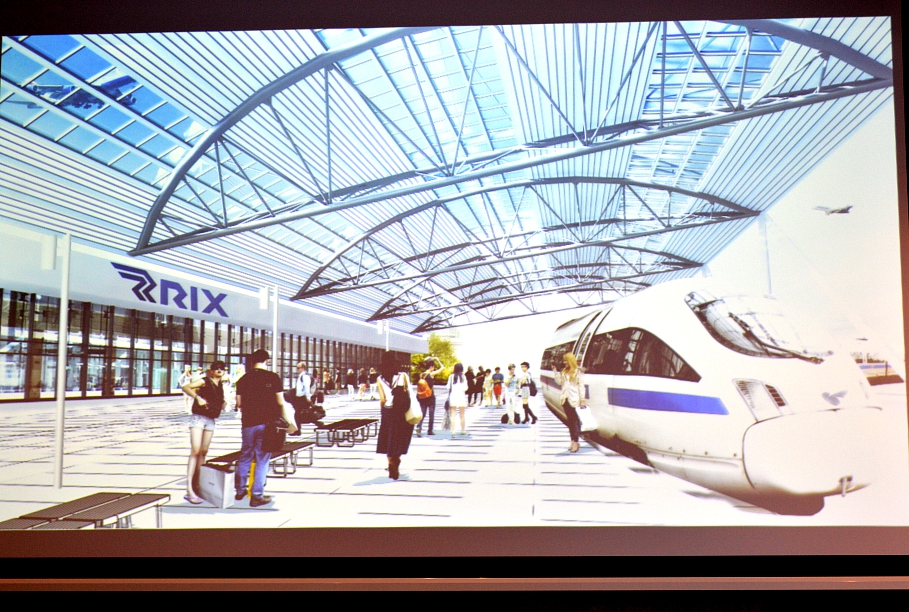With the project falling behind schedule and many major decisions about contracts still to be made, the whole project could collapse if a frustrated EU withdraws funding, De Facto said.
In 2014 Estonia, Latvia and Lithuanaia formed a joint-venture company, RB Rail (slogan: 'Road of the future'), to take overall responsibility for the high-speed train track design, construction and marketing. But now it seems that each country will take charge of things like station and terminal designs and construction separately in a bid to give local contracts to local companies - but which will probably also ensure cost-saving via joint contracts is not a possibility.
"There are other interested parties who would like to see a situation where for example in Lithuania, only Lithuanians will build for Lithuanians with Lithuanian workers," said RB chairwoman Baiba Rubesa.
As an example of the disconnect, Lithuania has already completed a stretch of European-gauge track linking the city of Kaunas to the Polish border. Running parallel to an existing Soviet-gauge track, it follows a winding course and it is unclear whether high-speed trains will be able to safely reach the 240km/h speeds envisaged for Rail Baltica.
Michael Kramer, chairman of the European Parliament' transport committee on a visit to the Baltic states, expressed frustration with the apparent inability of the three countries to pool resources.
"Now we see hesitation... We need to put pressure on the Baltic countries to work together because it is still a European project financed by European taxes. Now we have to come to an end [of discussion] and start building," said Kramer.
Lithuania's deputy transport minister Arijandas Šliupas shrugged off the criticism however, saying: "If someone thinks they can threaten the member states and pressurize them into agreement, we can;t stop them playing their games... The debate on the various documents continues. We will complete it in a timely manner. I do not see any threat that the money will be lost."
After an August meeting in Riga made little headway, the three countries are due to meet in Tallinn on September 7 with the clock ticking.
"If there will not be a fundamental agreement on September 7 on the financing and implementation of the project, I'll hold my breath and see what will happen afterwards," said Rubesa.
Rail Baltica is a key EU infrastructure project to link Finland, Estonia, Latvia, Lithuania and Poland with a new European gauge fast conventional railway.
Rail Baltica is one of the priority projects of the European Union: Trans-European Transport Networks (TEN-T). It envisages a continuous rail link from Tallinn (Estonia) to Warsaw (Poland), going via Riga (Latvia) and Kaunas (Lithuania). The Baltic route should be completed by 2025; the link to Warsaw-2030.
According to the European Commission, the total cost is €5bn, with 85% of that cost coming from the EU and 15% from the member states involved.



























